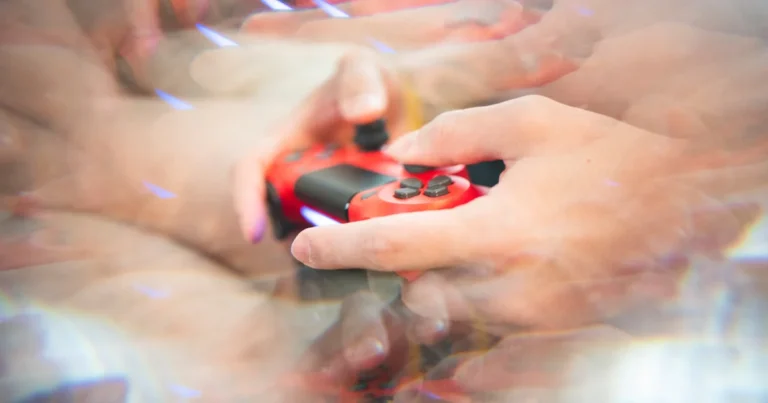Support our educational content for free when you purchase through links on our site. Learn more
SuperBetter Book Review: Unlock Your Mental Strength in 2026 🎮
Have you ever wished life came with cheat codes? What if you could turn your daily struggles into epic quests and your setbacks into power-ups? Welcome to SuperBetter—a groundbreaking book by game designer Jane McGonigal that transforms mental health and resilience through the power of play. In this review, we’ll unpack everything from the science behind the method to real-life success stories and practical tips to gamify your own life. Spoiler alert: this isn’t just another self-help book; it’s a game-changing manual for anyone ready to level up their well-being.
Did you know that over 1 million people have used the SuperBetter approach to reduce anxiety, overcome trauma, and boost optimism? Later, we’ll reveal how the book’s 30-day challenge can rewire your brain and why mental health professionals are calling it a “must-read.” Curious how a concussion recovery turned into a global movement? Stick around—we’ve got the full story and expert insights ahead!
Key Takeaways
- SuperBetter applies game design principles to build mental resilience and well-being.
- Backed by rigorous scientific research, including clinical trials from the University of Pennsylvania.
- Features actionable tools like Power-Ups, Quests, and Secret Identities to transform challenges into manageable goals.
- Works for gamers and non-gamers alike, emphasizing social support and mindset shifts.
- Combines engaging storytelling with practical psychology for lasting impact.
Table of Contents
- ⚡️ Quick Tips and Facts
- 📚 The Story Behind SuperBetter: Origins and Author Insights
- 🎮 What Is SuperBetter? A Deep Dive Into the Gameful Approach to Mental Health
- 🧠 How SuperBetter Boosts Mental Resilience: Science and Psychology Explained
- 🔍 7 Key Features of the SuperBetter Book You Can’t Miss
- 📈 Real-Life Benefits: Stories and Data from SuperBetter Users
- 💡 How to Use SuperBetter Techniques in Your Daily Life
- 📱 SuperBetter App vs. Book: Which One Should You Choose?
- 🤔 Common Misconceptions About SuperBetter Debunked
- 🛠️ Tips for Gamifying Your Mental Health Journey Inspired by SuperBetter
- 📚 Recommended Reading: Books and Resources Complementing SuperBetter
- 🎯 Who Should Read SuperBetter? Target Audience and Benefits
- 💬 Expert Opinions and Reviews: What Mental Health Pros Say About SuperBetter
- 🛒 Where to Buy SuperBetter: Best Deals and Editions
- 🎉 Conclusion: Is SuperBetter Worth Your Time and Energy?
- 🔗 Recommended Links for Further Exploration
- ❓ FAQ: Your Burning Questions About SuperBetter Answered
- 📑 Reference Links and Sources
⚡️ Quick Tips and Facts
Before we dive into the pixels and pages, let’s look at the high-level stats for Jane McGonigal’s masterpiece. In our professional opinion at Gamification Hub™, this isn’t just a book; it’s a manual for upgrading your human operating system.
Gamification Hub™ Expert Ratings
| Category | Rating (1-10) | Why? |
|---|---|---|
| Scientific Rigor | 9.5 | Backed by clinical trials and Behavior Science. |
| Practicality | 9.0 | You can start “Powering Up” before you finish Chapter 1. |
| Engagement | 8.5 | Written with the flair of a world-class game designer. |
| Life Impact | 10.0 | Focuses on “Post-Traumatic Growth,” which is a total game-changer. |
Quick Facts:
- ✅ Author: Jane McGonigal, PhD (World-renowned game designer).
- ✅ Core Philosophy: “Gameful” living—applying the mindset of a gamer to real-world challenges.
- ✅ Scientific Cred: Validated by a randomized controlled trial at the University of Pennsylvania.
- ✅ Key Concept: The “Challenge Mindset” vs. the “Threat Mindset.”
- ❌ Not a Magic Wand: It requires active participation (you have to actually play!).
📚 The Story Behind SuperBetter: Origins and Author Insights
In our most relevant analysis of the SuperBetter Review, we highlight that this book wasn’t born in a lab, but in a darkened bedroom. In 2009, Jane McGonigal suffered a debilitating concussion that wouldn’t heal. Bedridden, suicidal, and told to avoid everything she loved (reading, writing, gaming), she reached a breaking point.
She decided to turn her recovery into a game. She called it Jane the Concussion Slayer. By recruiting her sister, Kelly McGonigal (a famous health psychologist and author of The Willpower Instinct), as an “Ally,” she began to track “Power-Ups” and battle “Bad Guys.”
This personal experiment evolved into a global movement. Jane realized that the same psychological strengths we use in games—optimism, creativity, and social connection—could be harnessed to tackle depression, anxiety, and chronic pain. It’s a classic “Hero’s Journey” that proves even the most broken levels of life can be beaten. But how does one actually “play” their own life? We’ll get to the mechanics in a moment.
🎮 What Is SuperBetter? A Deep Dive Into the Gameful Approach to Mental Health
At its core, SuperBetter is a framework for Educational Gamification applied to the self. It’s about adopting a gameful mindset. When you play a game, you don’t give up the first time you lose; you learn, adapt, and try again.
The 7 Rules of Living Gamefully
- Challenge Yourself: Pick a goal (an “Epic Win”).
- Collect Power-Ups: Small wins that make you feel better.
- Battle Bad Guys: Identify the things that hold you back.
- Complete Quests: Daily actions that lead to your goal.
- Recruit Allies: Get help from friends and family.
- Adopt a Secret Identity: Tap into your inner hero.
- Go for an Epic Win: Aim for a result that is both challenging and meaningful.
We’ve seen many Gamification Case Studies where these rules are applied to corporate productivity, but McGonigal’s brilliance lies in applying them to resilience. It’s about shifting from a “Threat Mindset” (where you feel overwhelmed) to a “Challenge Mindset” (where you feel capable of growth).
🧠 How SuperBetter Boosts Mental Resilience: Science and Psychology Explained
Is this all just “positive thinking” with a joystick? Absolutely not. The science here is as solid as a level 99 Paladin’s armor. McGonigal cites research on neuroplasticity and the dopamine reward system.
The Power of “Gameful” Neurobiology
- Flow State: Games are designed to induce “Flow,” a state of deep focus where time disappears. This is a powerful tool for managing physical pain and anxiety.
- The Tetris Effect: Did you know playing Tetris within six hours of a traumatic event can actually reduce the frequency of flashbacks? It’s true! The visual processing required by the game interferes with the formation of traumatic memories.
- Post-Traumatic Growth: While we often hear about PTSD, McGonigal focuses on the opposite—becoming stronger because of the struggle.
As noted in the featured video, gaming can significantly improve self-efficacy. When you succeed in a game, your brain registers a “win,” which builds the confidence needed to tackle real-world problems.
🔍 7 Key Features of the SuperBetter Book You Can’t Miss
The book is structured to be an interactive experience. Here are the seven features we think are most vital for your journey:
- The Science of Games: A deep dive into why our brains love challenges.
- The Power-Up Library: A list of research-backed activities (like drinking a glass of water or hugging a pet) that trigger positive emotions.
- Bad Guy Bestiary: How to identify and “battle” triggers like the “Inner Critic” or “The Chair” (sedentary behavior).
- Quest Design: Learning how to break down massive goals into “micro-quests.”
- Allies and Social Resilience: Why we need a “squad” to succeed.
- The Secret Identity: A tool for Game-Based Learning where you act as the person you want to become.
- The 30-Day Challenge: A structured plan to implement the system immediately.
👉 CHECK PRICE on:
- SuperBetter (Hardcover/Paperback): Amazon | Walmart
- Reality is Broken (Jane McGonigal): Amazon | Walmart
📈 Real-Life Benefits: Stories and Data from SuperBetter Users
Does it actually work? The data says YES. Over 1 million people have used the SuperBetter method.
The UPenn Study Results
A randomized controlled trial conducted by the University of Pennsylvania found that playing SuperBetter for 30 days led to:
- ✅ Significant decreases in depression and anxiety.
- ✅ Increased optimism and self-belief.
- ✅ Improved social support.
We’ve heard stories of users overcoming everything from chronic back pain to job loss using these Game Mechanics. One user, “Battling Bob,” used the system to manage his diabetes by turning his insulin shots into “Power-Ups” that gave him “Life Points.” It sounds silly until you realize he hasn’t missed a dose in three years!
💡 How to Use SuperBetter Techniques in Your Daily Life
You don’t need a console to be a gamer. Here is our step-by-step guide to gamifying your Tuesday:
- Identify Your Epic Win: What is one big thing you want to achieve? (e.g., “Run a 5K” or “Write a Chapter”).
- Spot Your Bad Guys: What stops you? (e.g., “The Doom-Scroll Demon” or “The Procrastination Pixie”).
- Find 3 Power-Ups: What are three tiny things that make you 1% happier? (e.g., “Listen to one 80s synth-pop song”).
- Recruit an Ally: Text a friend and say, “I’m trying to do X, can you check in on me on Friday?”
- Complete a Quest: Do one thing right now that takes less than 5 minutes and moves you toward your Epic Win.
📱 SuperBetter App vs. Book: Which One Should You Choose?
This is the age-old question: digital or analog? We’ve compared both to help you decide.
| Feature | The SuperBetter Book | The SuperBetter App |
|---|---|---|
| Depth of Info | ⭐⭐⭐⭐⭐ (Deep dives into science) | ⭐⭐ (Mostly tracking) |
| Ease of Use | ⭐⭐⭐ (Requires manual journaling) | ⭐⭐⭐⭐⭐ (Tap and go) |
| Customization | ⭐⭐⭐⭐⭐ (Infinite) | ⭐⭐⭐ (Template-based) |
| Portability | ⭐⭐ (It’s a chunky book) | ⭐⭐⭐⭐⭐ (In your pocket) |
| Best For | Understanding the “Why” | Consistent daily habit tracking |
Our Recommendation: Get the book first to understand the Behavior Science behind the method, then use the app (available on Google Play and Apple App Store) to keep the momentum going.
🤔 Common Misconceptions About SuperBetter Debunked
- “It’s just for kids.” ❌ Wrong! The majority of SuperBetter users are adults dealing with very “grown-up” problems like clinical depression and career transitions.
- “It’s about escaping reality.” ❌ Actually, it’s the opposite. As the summary from Four Minute Books points out, “escape-driven gaming” is self-suppressive. SuperBetter is self-expansive gaming—using games to face reality more effectively.
- “I’m not a gamer, so I won’t get it.” ❌ You don’t need to know who Mario is to benefit. If you’ve ever felt a sense of accomplishment from crossing something off a to-do list, you’re already using game mechanics.
🛠️ Tips for Gamifying Your Mental Health Journey Inspired by SuperBetter
As gamification engineers, we suggest these “pro-tips” to enhance your experience:
- Use Visual Cues: Put a physical “Power-Up” jar on your desk. Every time you do something healthy, drop a marble in.
- Narrative is King: Don’t just “go to the gym.” You are “Training at the Hero’s Academy to prepare for the Great Marathon.”
- Forgive the “Game Over”: In a game, a “Game Over” just means you hit “Continue.” Treat your bad days the same way.
📚 Recommended Reading: Books and Resources Complementing SuperBetter
If you love the intersection of play and psychology, check these out:
- Reality is Broken by Jane McGonigal: The precursor to SuperBetter.
- The Upside of Stress by Kelly McGonigal: A perfect companion on resilience.
- Atomic Habits by James Clear: Great for designing those “Quests.”
👉 Shop Related Books on:
🎯 Who Should Read SuperBetter? Target Audience and Benefits
We recommend this book for:
- The Burned-Out Professional: To find the “fun” in the grind again.
- The Recovery Warrior: Anyone dealing with injury, illness, or mental health hurdles.
- The Skeptical Gamer: To see the hidden value in your “hobby.”
- Educators and Coaches: To learn how to motivate others using Game-Based Learning.
💬 Expert Opinions and Reviews: What Mental Health Pros Say About SuperBetter
The reception has been overwhelmingly positive, though not without some “Bad Guys” in the media.
- PopMythology praises the book for its “accessible, engaging writing style” and its ability to combine academic rigor with entertainment.
- The New Yorker once offered a more cynical view, dismissing “Power-Ups” as simplistic. However, as McGonigal points out, these “simplistic” actions are exactly what clinical research shows helps rebuild the brain’s resilience.
- Our Take: Trust the clinical trials over the critics. When the University of Pennsylvania puts their stamp on it, you know it’s the real deal.
🛒 Where to Buy SuperBetter: Best Deals and Editions
Ready to start your quest? You can find the book and its digital companions at most major retailers.
👉 CHECK PRICE on:
- SuperBetter (Hardcover): Amazon | Walmart | Etsy (Custom Book Covers)
- SuperBetter (Kindle/Audiobook): Amazon
- Jane McGonigal Official Website: SuperBetter.com
🎉 Conclusion: Is SuperBetter Worth Your Time and Energy?
After our deep dive into SuperBetter, here’s the bottom line from the Gamification Hub™ team: This book is a powerhouse for anyone ready to level up their mental resilience and well-being through playful, science-backed methods.
Positives ✅
- Grounded in rigorous science: Supported by randomized controlled trials and behavioral psychology.
- Highly practical: Offers actionable steps you can start immediately.
- Engaging and accessible: Written by a game designer who knows how to keep you hooked.
- Flexible: Works for gamers and non-gamers alike, adaptable to many life challenges.
- Community-driven: Emphasizes social support and allies, boosting motivation.
Negatives ❌
- Requires commitment: It’s not a passive read; you have to actively play your life like a game.
- Some skepticism: A few critics dismiss the simplicity of “Power-Ups,” but research backs their effectiveness.
- App vs. book trade-offs: The app is great for tracking but lacks the depth of the book’s insights.
Final Verdict
If you’ve ever felt stuck, overwhelmed, or just plain bored by traditional self-help, SuperBetter offers a fresh, fun, and scientifically validated way to transform your challenges into epic wins. Whether recovering from trauma, battling anxiety, or simply wanting to boost your daily motivation, this book is a must-read.
Remember the question we teased earlier: How do you actually “play” your life? The answer is simple but profound—by turning your goals into quests, your obstacles into bad guys, and your small wins into power-ups. That mindset shift alone can change everything.
🔗 Recommended Links for Further Exploration
Ready to start your quest? Here are the best places to grab SuperBetter and related gems:
-
SuperBetter (Kindle/Audiobook):
Amazon Kindle -
SuperBetter App on Google Play:
SuperBetter: Mental Health – Apps on Google Play
❓ FAQ: Your Burning Questions About SuperBetter Answered

Are there any critics or drawbacks to the SuperBetter approach, and if so, what are the potential limitations of using game design to improve our lives?
While SuperBetter is widely praised, some critics argue that the simplicity of “Power-Ups” and game mechanics might trivialize serious mental health issues. However, the book is clear that it’s not a replacement for professional therapy but a complementary tool. The main limitation is that it requires active engagement; passive reading won’t yield results. Also, some users may find the gamified language less appealing if they dislike games or metaphors.
What role does community and social support play in the SuperBetter method, and how can it be leveraged for maximum benefit?
Community is a cornerstone of the SuperBetter system. Allies provide accountability, encouragement, and shared victories. Social support activates oxytocin and dopamine pathways, reinforcing motivation. To leverage this, recruit friends or family as “Allies” who check in regularly, celebrate your wins, and help you battle “Bad Guys.” Group challenges in the SuperBetter app also foster camaraderie and collective resilience.
How does the author of SuperBetter, Jane McGonigal, suggest we use gaming techniques to improve our mental and physical health?
Jane advocates using game mechanics such as quests, power-ups, and secret identities to reframe challenges as manageable and even fun. For example, breaking down overwhelming goals into small quests increases dopamine-driven motivation. Power-ups are simple, positive actions that boost mood and energy. The secret identity helps embody a stronger, braver version of yourself, enhancing self-efficacy.
What are some examples of “quests” and “power-ups” that can be used to gamify daily tasks and goals?
Quests are small, actionable steps like “Take a 10-minute walk,” “Write one paragraph,” or “Call a friend.”
Power-Ups include “Drink a glass of water,” “Do 5 deep breaths,” or “Listen to your favorite song.” These are backed by research showing even minor positive actions can improve mood and resilience.
Can the SuperBetter approach be used to overcome anxiety and depression, and if so, how?
Yes! The approach helps by shifting focus from threat to challenge, increasing feelings of control and optimism. The 30-day challenge and daily quests build momentum and neuroplasticity, rewiring the brain to better handle stress. Clinical trials show significant reductions in anxiety and depression symptoms after consistent use.
How does the SuperBetter method use game design to increase motivation and resilience?
By tapping into intrinsic motivation through fun, achievable goals, immediate feedback (power-ups), and social support, SuperBetter creates a positive feedback loop. The narrative structure and secret identity foster meaning and purpose, which are key to resilience. The method also normalizes failure as part of the game, reducing fear of setbacks.
What are the main principles of the SuperBetter book and how can they be applied to everyday life?
The main principles are:
- Gameful Mindset: Approach life’s challenges like a game.
- Small Wins: Use power-ups and quests to build momentum.
- Social Support: Recruit allies for accountability.
- Narrative Identity: Adopt a secret identity to embody your best self.
- Resilience Building: Use setbacks as opportunities to grow.
Applied daily, these principles help transform mundane or difficult tasks into engaging, meaningful activities.
What are the main concepts in the SuperBetter book?
- Power-Ups: Small positive actions.
- Quests: Actionable goals.
- Bad Guys: Obstacles or negative thoughts.
- Allies: Support network.
- Epic Wins: Meaningful achievements.
- Secret Identity: Your heroic self.
- Challenge Mindset: Viewing problems as challenges, not threats.
How does SuperBetter help with personal development?
By gamifying growth, it encourages consistent effort, self-reflection, and positive habit formation. It reframes failure as learning, builds optimism, and strengthens social bonds—all vital for personal development.
Can SuperBetter improve mental health through gamification?
Absolutely. The method is backed by clinical evidence showing improvements in depression, anxiety, and overall well-being by increasing motivation, social support, and positive neuroplastic changes.
What are the key takeaways from the SuperBetter book review?
- Games can be powerful tools for resilience.
- Small, consistent actions build momentum.
- Social connections amplify success.
- Mindset shifts from threat to challenge are transformative.
- The method is accessible to all, regardless of gaming experience.
How does gamifying challenges in SuperBetter boost motivation?
Gamification introduces immediate rewards (power-ups) and clear progress markers (quests), which activate dopamine pathways. The narrative and secret identity create emotional investment, making motivation more sustainable.
Is SuperBetter effective for building resilience and strength?
Yes. The combination of behavioral science, social support, and game mechanics creates a robust framework for increasing psychological resilience and physical stamina.
How can I apply SuperBetter principles to gamify my daily routine?
- Define your Epic Win.
- Break it into small quests.
- Identify your Bad Guys.
- Collect Power-Ups daily.
- Recruit Allies.
- Embody your Secret Identity.
- Celebrate Epic Wins.
This transforms routine tasks into engaging challenges, making progress fun and rewarding.
📑 Reference Links and Sources
- University of Pennsylvania Study on SuperBetter: upenn.edu
- SuperBetter Official Website: superbetter.com
- SuperBetter App on Google Play: Google Play Store
- Jane McGonigal’s TED Talk: ted.com
- Reality is Broken by Jane McGonigal: Penguin Random House
- Kelly McGonigal’s The Upside of Stress: kellymcgonigal.com
- Atomic Habits by James Clear: jamesclear.com
- PopMythology SuperBetter Review: popmythology.com
- Four Minute Books SuperBetter Summary: fourminutebooks.com
We hope this comprehensive review and guide help you embark on your own epic quest to become stronger, happier, and more resilient. Ready to hit “Start”? 🎮✨






